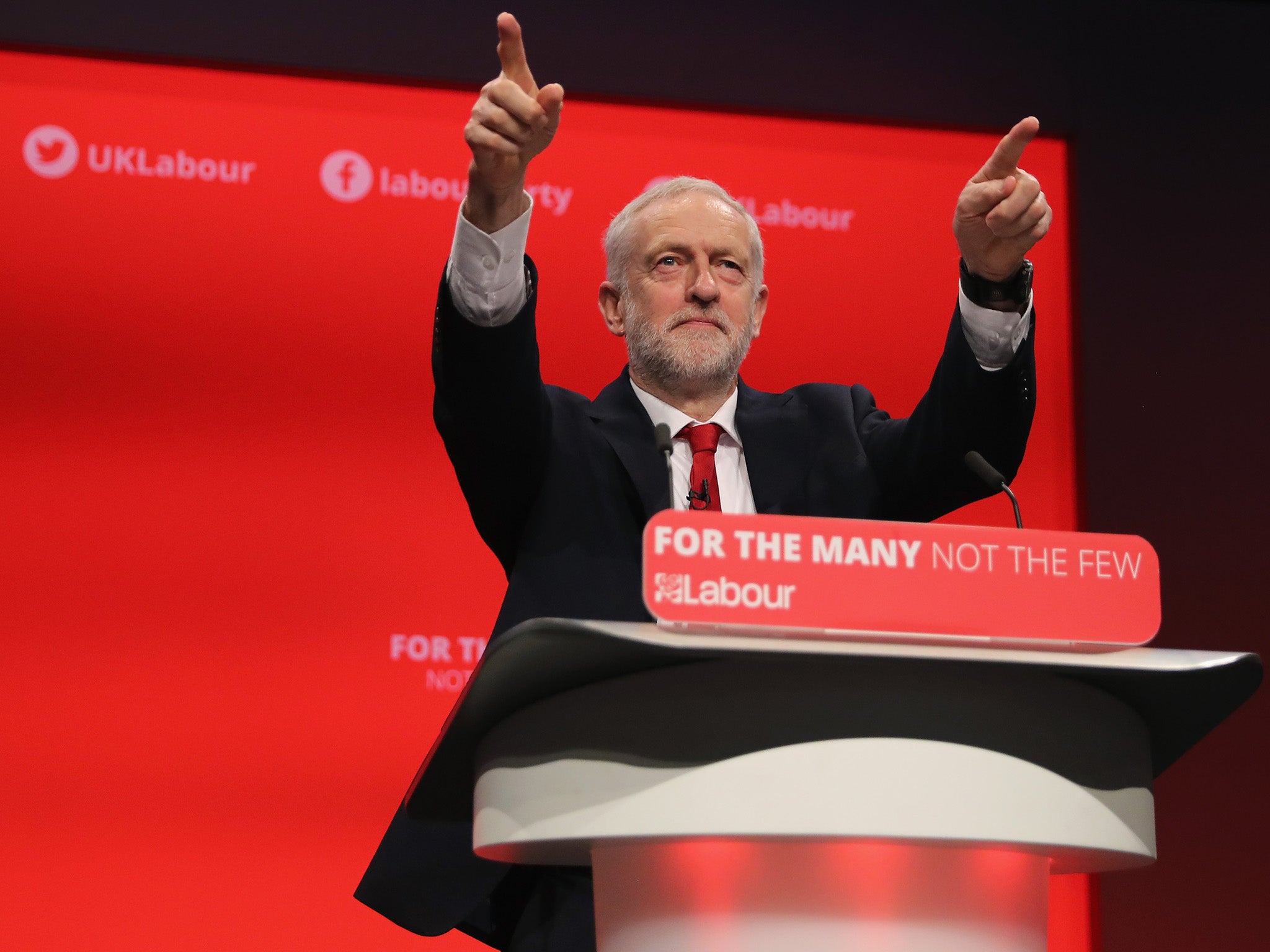City bankers are warming to Jeremy Corbyn. This is why
‘There’s an evolving view among our clients that Corbyn and McDonnell can’t be much worse than the current mob,' one stockbroker told me. The reality is that Labour has a manifestly more City-friendly Brexit position than the Tory party


The City of London is grappling with a Corbyn-shaped paradox. It’s no secret that the Square Mile has traditionally leaned Conservative. And many in the City instinctively recoil from Labour under Jeremy Corbyn and John McDonnell, with their manifesto that plans to hike income taxes on top earners and their long-standing antipathy to financiers.
Yet, at the same time, the reality is that Labour has a manifestly more City-friendly Brexit position than the Tory party.
Theresa May’s fateful speech almost a year ago committed her Government to yanking the UK out of the single market and quashed the idea of any continuing role for the European Court of Justice in the UK. As the EU negotiating side has made clear, on multiple occasions, those two decisions spell death for UK-based financial firms’ “passport”, or their ability to sell their services right across the European Union. If they wish to continue serving mainland European clients they will have to establish (or beef up) subsidiaries on the European mainland itself at considerable cost and hassle. And these entities will be regulated by the EU, rather than the UK, authorities.
Labour’s position on the single market is much less hard line than Theresa May’s. Keir Starmer, the party’s Brexit spokesperson, recently suggested Labour might seek to remain within the single market even after the two-year or so transition period that is supposed to begin in March 2019 has expired.

Even if that didn’t materialise, Labour’s position is far more likely to secure the kind of “regulatory equivalence” agreement for UK financial firms, under which the British financial authorities would agree to shadow EU rules in return for a reasonable degree of freedom for British-based companies to operate on the continent. This would minimise the disruption for the City’s lucrative mainland European business.
But regulatory divergence is one of the central objectives of Brexit for influential elements in the Conservative party. Regulatory equivalence for the UK would only be feasible with some degree of deference to the EU institutions. One can already hear the cries of “vassal state” forming in the throats of pro-Brexit Tory backbenchers in response to that idea.
Imperfect as they both are, if most bank bosses and financial sector workers were asked to choose between the Labour and Conservative positions on the single market (abstracting from their other policies and leading personalities) it’s pretty easy to guess which they would find more appealing.
And what about those policies and personalities? Recently I asked an asset manager what would be worse: hard Brexit or a Jeremy Corbyn-led government? “Corbyn,” he said. “Hard Brexit would be a V-shaped recession: fall and then rapid recovery. But Corbyn would do damage forever.”
That opinion was based on the view that a Corbyn-led government would indiscriminately attack private property rights, tax the rich until the pips exploded, nationalise everything in sight and turn the country into a damper Venezuela.
But how credible is such a view? It’s certainly not based on the party’s manifesto, which was, despite the hysterical media reception, essentially a vision of a mainstream social democratic European nation. And McDonnell has been actively trying to calm the nerves of City firms over imminent expropriation in recent months, with his “tea offensive”.
There are some decent people in politics, not one-eyed anti-Labour partisans, who genuinely believe this image of geniality and moderation is an act and that the current leadership truly are secret Stalinists, concealing their true intentions. But, of course, it’s not merely the City that needs to reach a judgment on that score.
Meanwhile, it’s worth recognising that the City itself is a somewhat paradoxical place. There’s certainly plenty of right-wing ideology and political tribalism in the Square Mile. But there’s plenty of pragmatism too. Indeed, one of the City’s major projects in recent years has been sucking up to the Communist regime in Beijing in order to become a major offshore hub for trading the Chinese currency.
The City’s a much more diverse place than sometimes recognised too. Theresa May’s “citizens of the world” complaint was hardly designed to charm the tens of thousands of foreign-born bankers, traders, economists, accountants, lawyers and IT technicians who turn the wheels there.
Competence matters too. And that’s an area in which the current Government, with its failure even to commission a formal economic impact assessment on leaving the single market, has left many in the City dismayed. “There’s an evolving view among our clients that Corbyn and McDonnell can’t be much worse than the current mob,” says one stockbroker.
Don’t expect the City of London to become a cheerleader for Corbyn. But, equally, don’t be surprised when the Square Mile proves rather more open-minded to a political change than its bowler-hatted, Labour-hating, stereotype implies.
Join our commenting forum
Join thought-provoking conversations, follow other Independent readers and see their replies
Comments
Bookmark popover
Removed from bookmarks